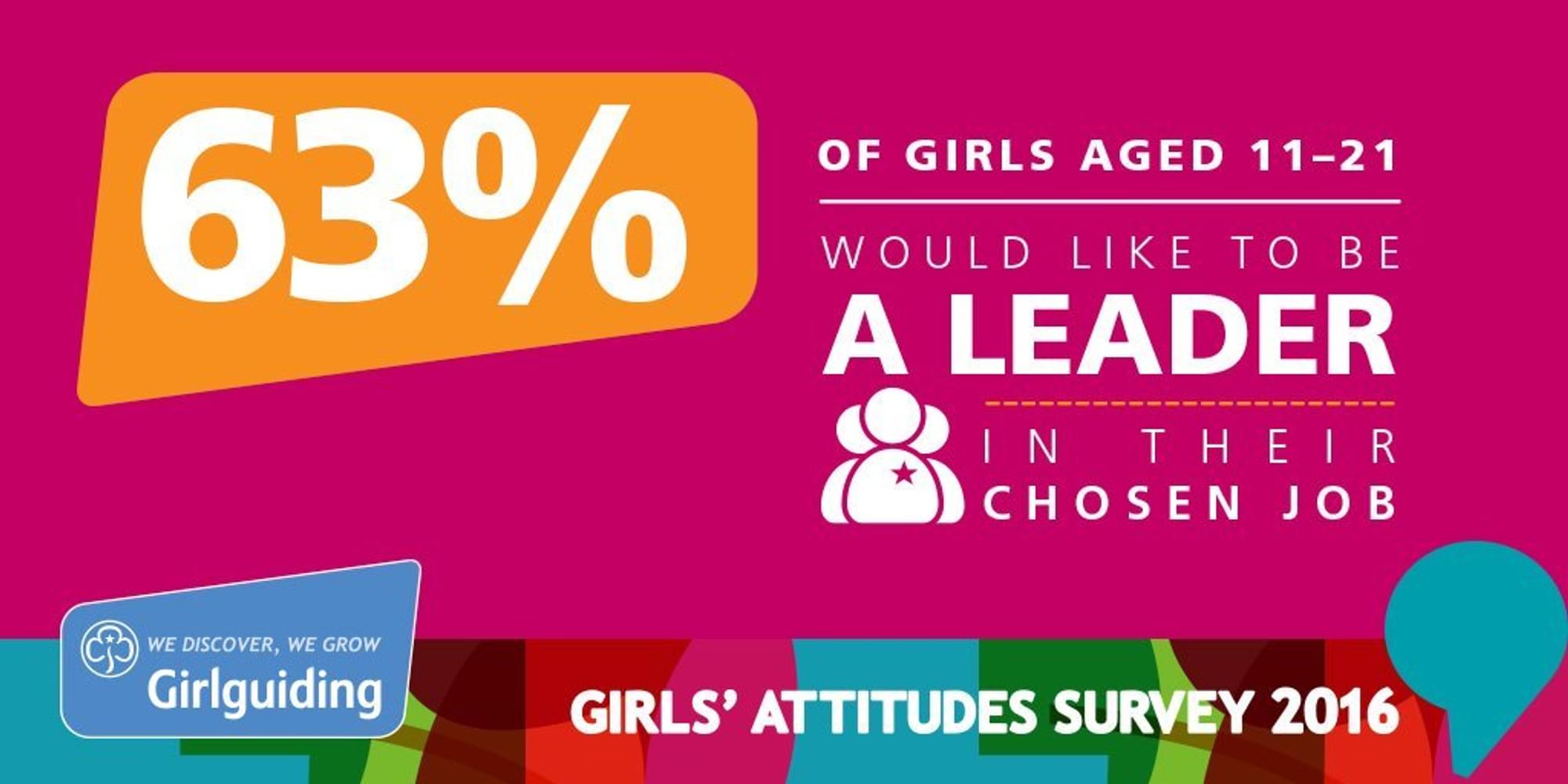Sexism, safety, self-esteem and leadership: some of the key themes raised in a 2016 report on the experiences of young girls/women aged 7-21.
Last week, Girlguiding UK published its annual Girls’ Attitudes Survey; the UK’s largest annual survey into girls’ views and experiences as they grow up today. The 2016 survey captured the voices of 1,627 girls and young women (seven to 21s) across the UK on seven key issues including body confidence, women in the media and everyday sexism, personal safety and harassment, online and social media, and mental and emotional well-being. You can read the full report here.
So what are the key messages that girls are communicating to us?
1. We often feel like we’re not good enough
For me, this is one of the most heart-breaking statistics from the report but unfortunately, it’s not surprising. Girls are surrounded by a culture which both screams and whispers to them, ‘You’re not enough’. The result of this? Young people, particularly girls, are becoming increasingly unhappy. Earlier in September, The Children’s Society Good Childhood Report found that one in seven (14%) girls (10-15) are unhappy with their lives as a whole (an increase of 11% over a five year period and a higher percentage compared with boys). Girls tell us that one of the biggest causes of girls’ anxiety is school, college or work. Others include being unemployed, falling out with friends, and what other people think of them. Worryingly, as girls get older, their confidence in their own abilities decreases.
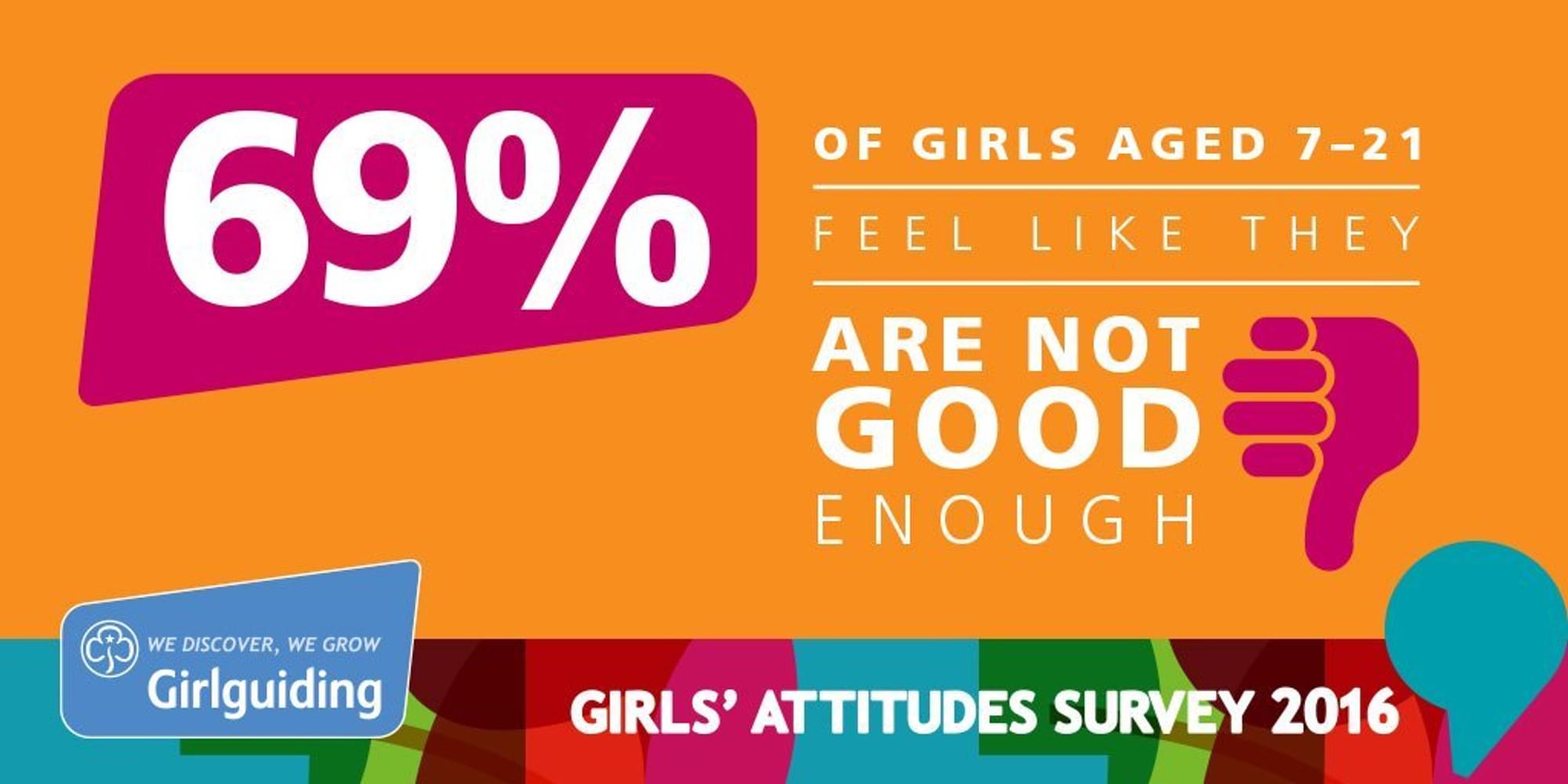
2. We have more to contribute to the world than our looks
Girls experience intense pressures around their appearance and have told us that fear of people criticising their bodies holds them back from doing everyday things. For example, playing sports, speaking up in class, and having their photo taken. In fact, 61% of girls (11-21) have experienced people criticising their bodies.
It’s very sad that one third of girls (seven to 10) said that other people make them believe that their value is based on their appearance. The media is a major force in shaping the culture that girls live in and some parts of it are communicating this negative message to girls: their worth and value is dependent on how they conform to a very narrow ideal of beauty. From a very young age, the toxic mix of consumerism and liberal capitalism teaches girls that their bodies are projects to be improved upon. On the other hand, boys are taught that their bodies are vehicles to navigate the world in. Dr Steve Biddulph, psychologist and author of Raising Girls argues, ‘Today's advertising actively creates anxieties. This amounts to nothing less than a war on girlhood... Every aspect of a girl's appearance now presents an opportunity to fail.’ Girls are taught that their physical appearance is never, ever good enough. As one girl shared in the report: ‘Girls are growing up hating their bodies because of the pictures that are shown in the media.’
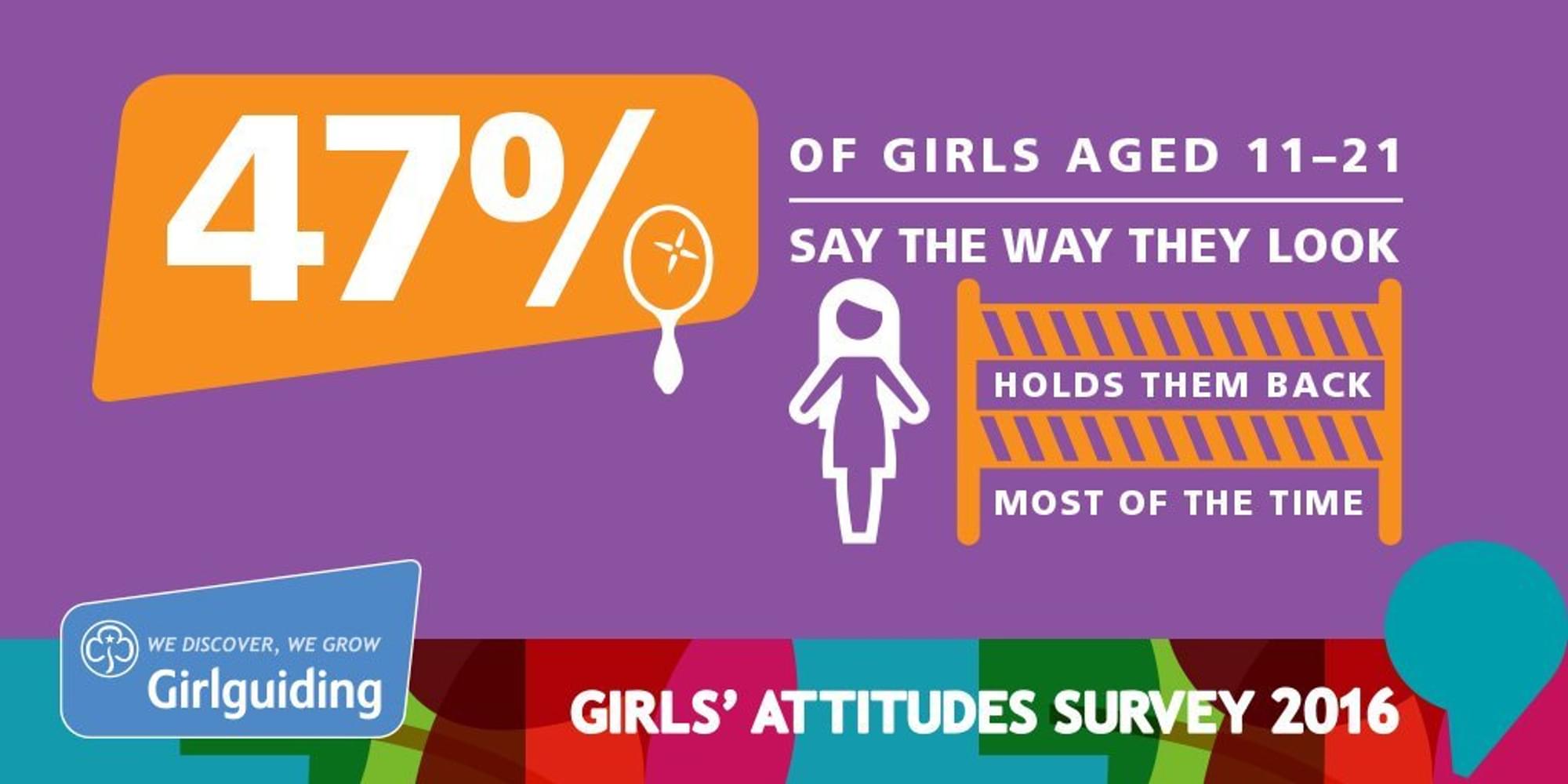
3. We believe everyday sexism particularly in the media is hurting society, especially girls
Girls recognise that the media plays a huge role in providing examples of what’s possible for girls to achieve. But 80% (17-21) agree that women are often shown as sex objects and 61% (13-21) don’t buy the lie that the sexual objectification of women is empowering.
Many girls are tired of society’s willingness to objectify women’s bodies – treating them like a commodity while completely ignoring their personality, talents and giftings. You just have to look at advertisements to see that our media culture mainly chooses to use women’s sexualised bodies to sell products like crisps, fizzy drinks and even cars. As a result, girls are learning to think and treat their bodies as objects to be made pleasing to others. Girls are increasingly becoming self-critical of how they look and are actually self-objectifying themselves, particularly over social media. On Facebook and Instagram, girls are scrutinising each other’s bodies and competing for likes and comments that validate their physical attractiveness (and in their eyes, their worth and value).
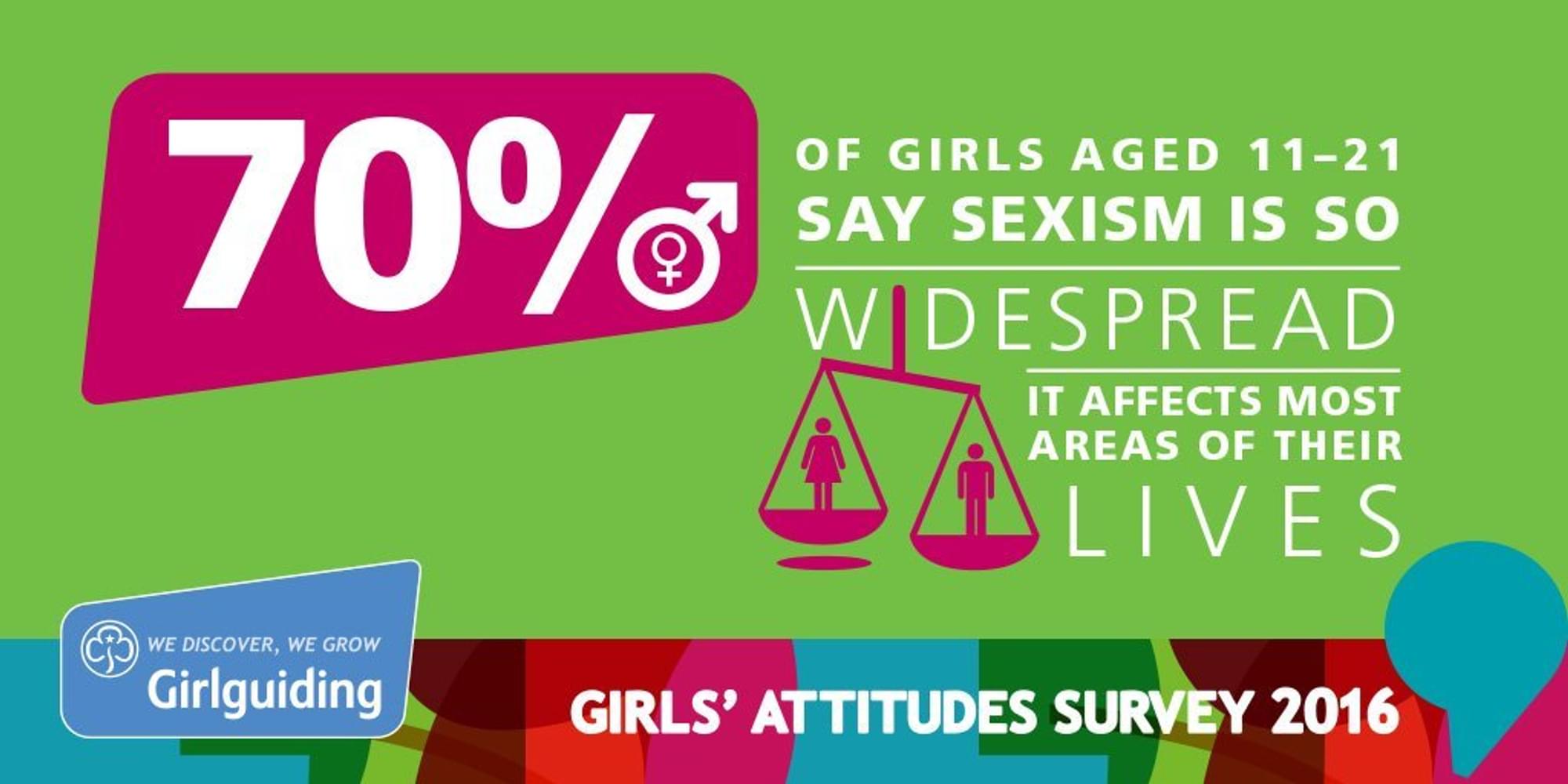
4. We often feel unsafe in public and online
Girls tell us that they experience frequent threats to their own personal safety - often changing their own behaviour to avoid these. Threats include intimidation by groups of boys, unwanted sexual comments, and other forms of street harassment. Girls often experience the worst sexism and harassment online. 49% (11-21) say fear of abuse online makes them less likely to share their views online.
When asked what can improve the lives of girls, girls are telling us it’s to make sure girls and women are safe. Many girls told Girlguiding UK that this would enable them and other girls to have the opportunity to live fuller and happier lives.
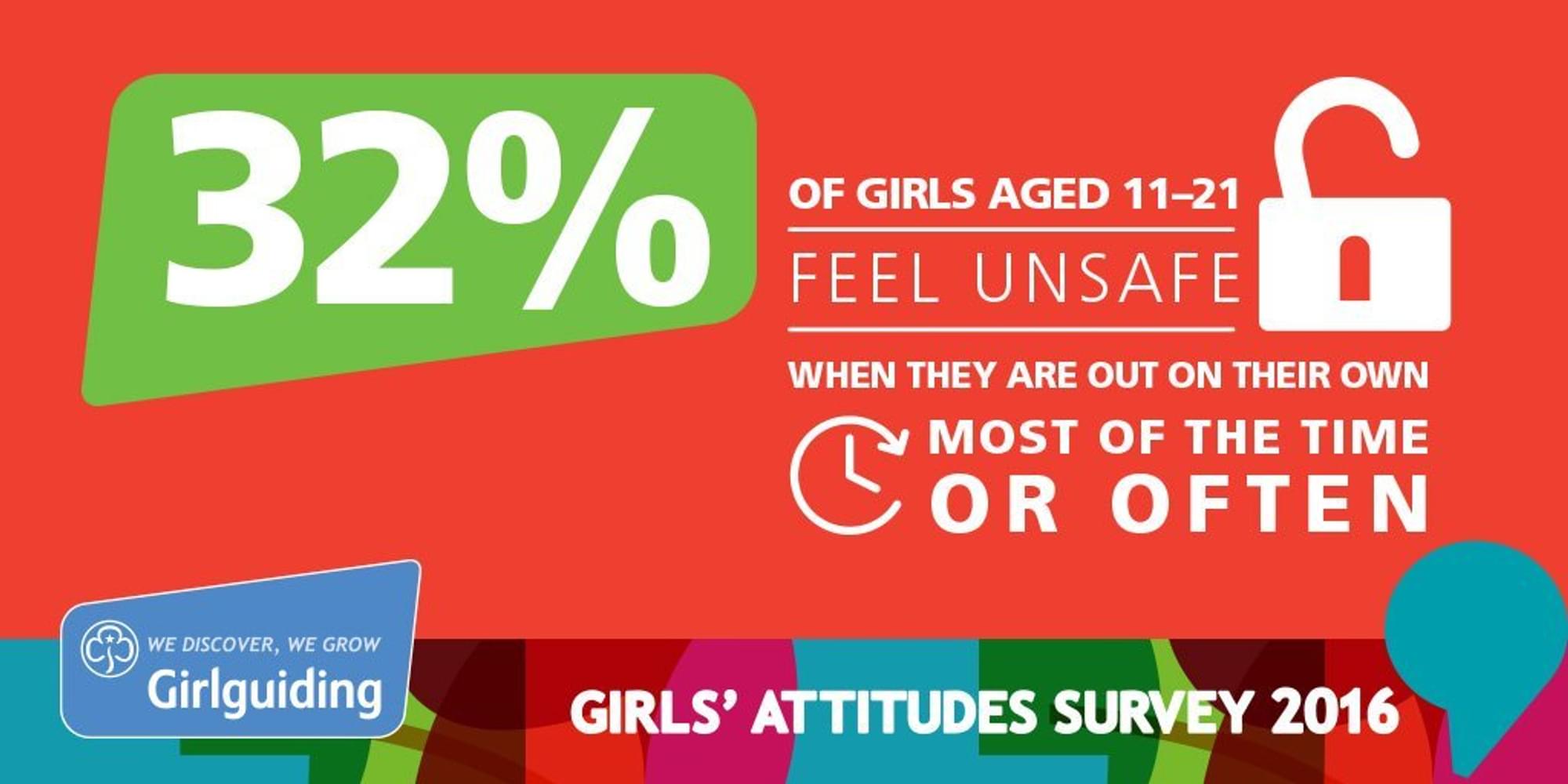
5. We aspire to be leaders
It’s encouraging that despite the sexist and limiting media culture in the UK, two-thirds of girls aspire to be leaders and, for half of girls, the current inequality in leadership makes them feel more determined to succeed. Sadly, while girls identify leaders as brave and powerful, they struggle to see themselves in this way.
It’s easy to be depressed by these statistics but Girls’ Brigade Ministries believes that God is calling us to turn up the volume of Gospel hope for girls. I’ve met young women in the UK, Ireland and across the world who are challenging the status quo. Despite the culture surrounding them, girls are refusing to be limited and demonstrating that they are, in fact, limitless. Girls are generation-shapers, hope-bringers and transformers of culture. And we, as a church and as youth workers, can also help empower a generation of girls to rise in Gospel hope.
